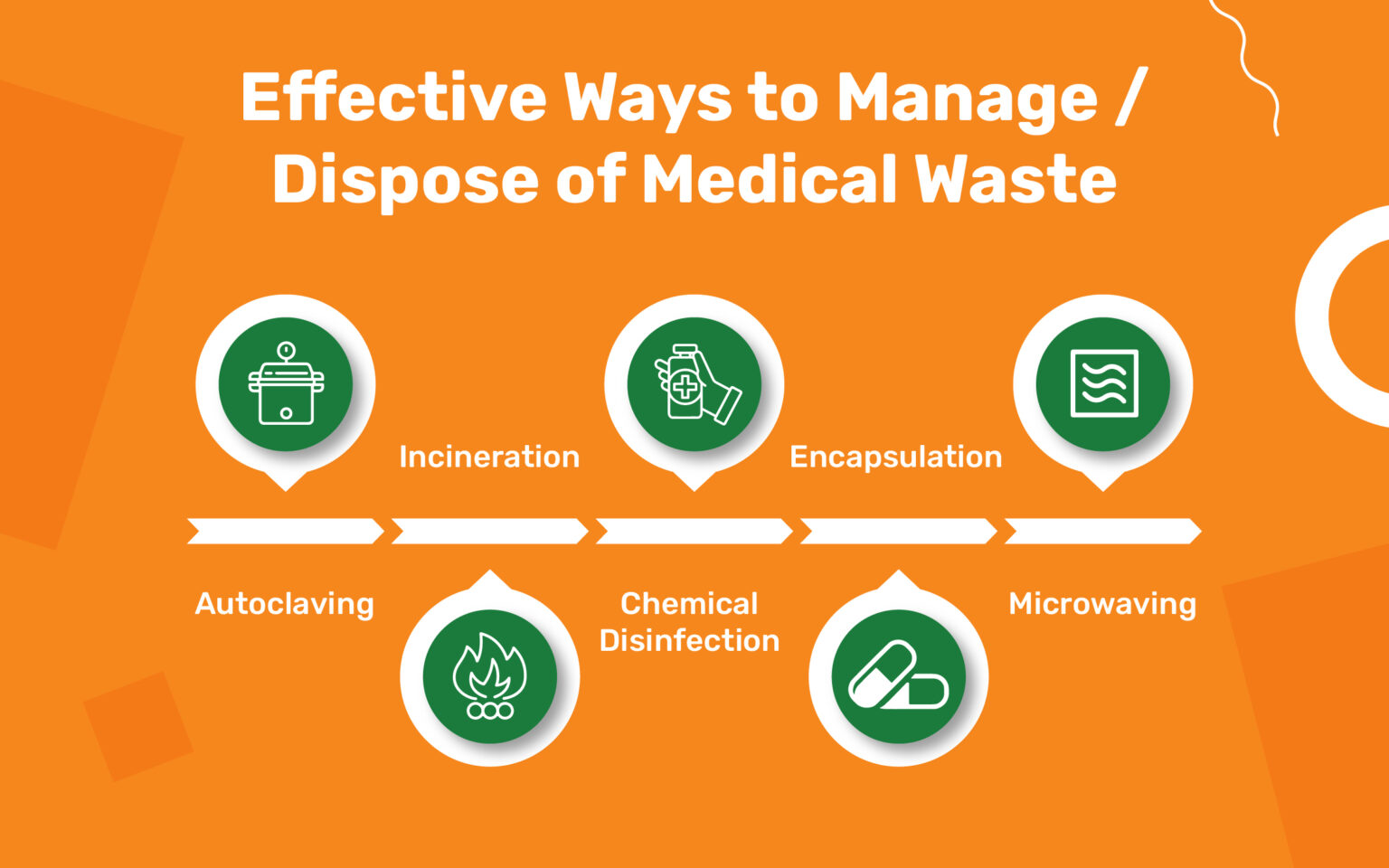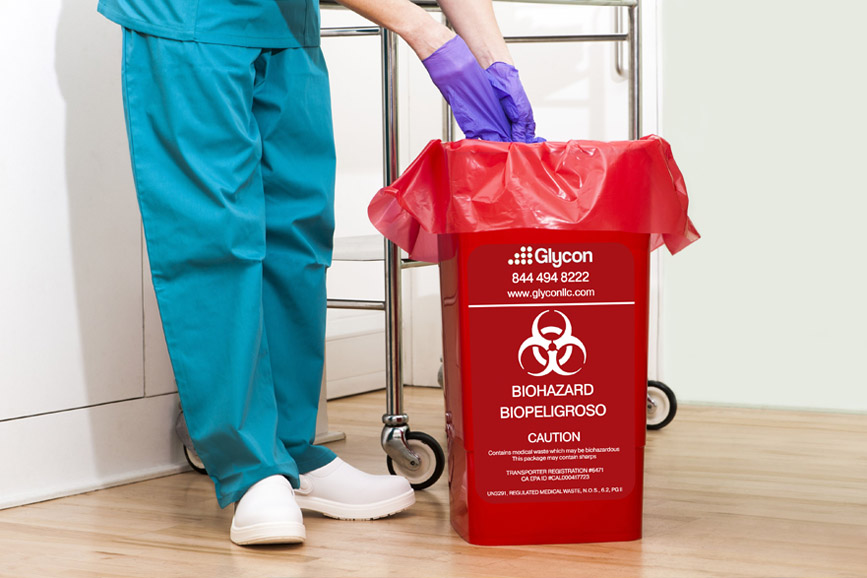Your Relied On Companion: Medical Waste Removal Services Tailored to Your Requirements
Your Relied On Companion: Medical Waste Removal Services Tailored to Your Requirements
Blog Article
Remain Ahead of Laws: Specialist Suggestions on Medical Waste Disposal
In a world where the medical care market is constantly evolving, it is critical for medical centers to stay ahead of regulations when it involves the correct disposal of medical waste. With rigorous standards and frequent regulative changes, it can be challenging to browse the intricacies of this procedure. With professional advice, facilities can ensure conformity and reduce threats connected with inappropriate waste disposal. From recognizing the various groups of medical waste to applying the right collection and partition methods, this discussion will certainly give actionable ideas and important understandings to aid centers remain ahead of policies in the ever-changing landscape of clinical waste disposal.
Understanding Clinical Waste Categories
Comprehending medical waste groups is crucial for correct disposal and monitoring in health care facilities. Medical waste refers to any waste created by health care tasks that may pose a risk to public wellness or the setting. It is vital to classify medical waste accurately to guarantee its safe handling, transport, disposal, and treatment.
There are numerous groups of clinical waste that health care facilities require to be familiar with. The most usual classifications consist of transmittable waste, pathological waste, sharps waste, pharmaceutical waste, and chemical waste. Each group has details guidelines and laws for its correct management and disposal.
Pathological waste refers to human tissues, body organs, or body components that require unique handling and disposal. Drug waste comprises ended, extra, or infected medications that require cautious handling and disposal.
Remaining Up-To-Date With Regulatory Modifications
Staying present with governing changes is vital for healthcare centers to ensure conformity and appropriate management of clinical waste disposal. medical waste removal. With policies constantly advancing, it is vital for healthcare centers to stay up-to-date to stay clear of penalties, fines, and possible harm to the setting and public wellness
To stay ahead of governing adjustments, healthcare facilities should establish a system for tracking and monitoring updates. This can be done by signing up for regulatory e-newsletters, participating in conferences and workshops, and actively joining industry organizations. Additionally, centers should designate a team member or team responsible for remaining notified and distributing details to relevant stakeholders.
Routine communication with regulatory companies is also vital. Healthcare centers should establish relationships with regional, state, and government companies to ensure they understand any changes in policies that may impact their waste administration methods. This can be done with normal conferences, involvement in public comment durations, and aggressive interaction with regulative firms.
Moreover, healthcare centers must think about partnering with waste administration companies that concentrate on medical garbage disposal (medical waste disposal services with WasteX). These firms are frequently well-versed in the latest laws and can give advice and assistance to guarantee conformity
Applying Appropriate Collection and Segregation Techniques
To properly manage clinical garbage disposal, medical care centers have to develop correct collection and partition techniques based on regulative guidelines. Executing these methods ensures the safe handling and disposal of possibly unsafe products, secures the atmosphere, and reduces the risk of infections and injuries to healthcare employees and the basic public.
Appropriate collection and segregation methods entail using assigned containers and labeling systems. Medical care centers ought to offer plainly classified containers for different sorts of clinical waste, such as sharps, contagious waste, pharmaceutical waste, and non-hazardous waste. These containers should be color-coded and plainly significant to avoid complication and advertise simple identification.
In addition, medical care facilities should educate their personnel on the correct treatments for collecting and setting apart medical waste. This our website includes informing them on the different kinds of waste, the proper containers to use, and the relevance of complying with guidelines and guidelines. Regular training sessions and correspondence course need to be carried out to ensure that personnel stay current on finest techniques.
Moreover, healthcare facilities need to establish a system for routine collection and disposal of medical waste. This may entail partnering with certified waste monitoring companies that focus on clinical waste disposal. These business will certainly ensure that the gathered waste is transported and thrown away in compliance with regulatory needs.
Choosing the Right Disposal Methods

Incineration is one of the most common and effective methods for dealing with specific kinds of clinical waste, such as pathological waste and sharps. It includes the controlled burning of waste at heats, decreasing it to ash. Incineration can launch damaging pollutants into the air and contribute to air pollution.

Chemical treatment includes the use of chemicals to reduce the effects of the waste and sanitize. Microwave treatment uses microwave power to heat and sanitize the waste.
Making Sure Compliance Through Paperwork and Training
After meticulously thinking about the appropriate disposal approaches for medical waste, healthcare facilities must make certain conformity with laws and lessen ecological effect by executing effective documentation and training treatments. This action is important in preserving a lasting and safe environment for both medical care employees and the public.

Healthcare employees that manage clinical waste must get suitable training on waste segregation, dealing with, and disposal procedures. By providing thorough training, medical care centers can equip their staff to make informed choices and lessen the danger of improper waste disposal.
Conclusion
To conclude, remaining ahead of regulations in clinical garbage disposal is vital for health care facilities. medical waste removal service. Understanding the various classifications of medical waste, remaining updated with governing adjustments, executing proper collection and partition methods, picking the proper disposal methods, and making certain conformity through documents and training are all vital Read Full Report steps. By complying with these guidelines, health care organizations can properly handle and get rid of of medical waste in a liable and safe fashion
From understanding the various categories of clinical waste to implementing the ideal collection and segregation techniques, this conversation will supply workable tips and useful understandings to help centers remain ahead of guidelines in the ever-changing landscape of clinical have a peek at this site waste disposal. - medical waste disposal services with WasteX
The most usual classifications include contagious waste, pathological waste, sharps waste, pharmaceutical waste, and chemical waste. Health care centers must give plainly classified containers for various kinds of medical waste, such as sharps, contagious waste, pharmaceutical waste, and non-hazardous waste. Health care centers should develop a comprehensive system to record and track all aspects of clinical waste disposal, consisting of kinds of waste produced, quantities, and disposal methods used. Medical care employees that manage medical waste should receive ideal training on waste partition, managing, and disposal procedures.
Report this page